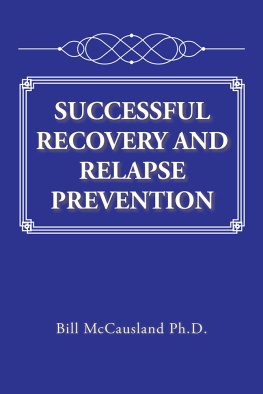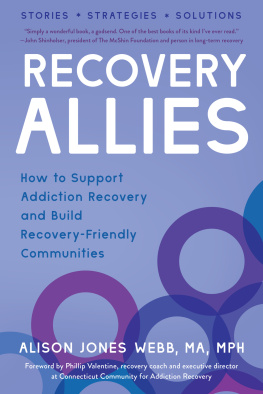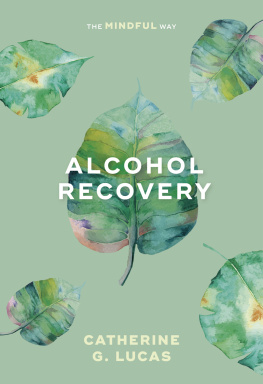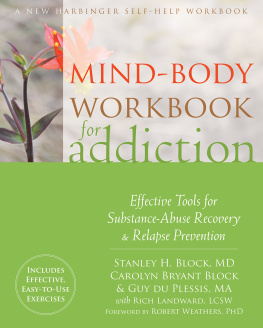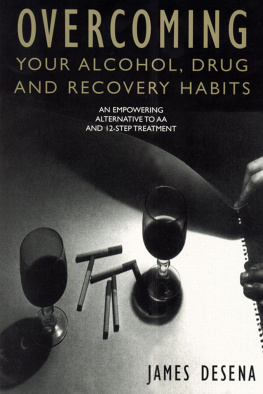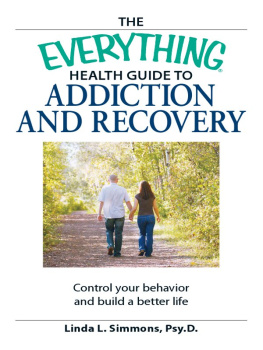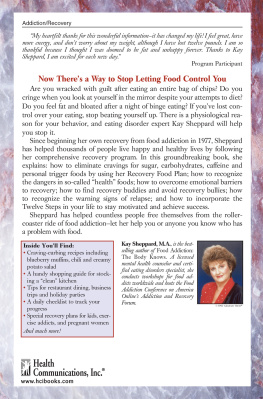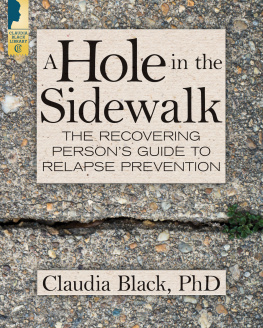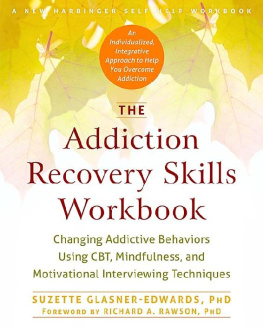SUCCESSFUL RECOVERY
AND RELAPSE PREVENTION

Bill McCausland Ph.D.
Copyright 2016 by Bill McCausland Ph.D.
Library of Congress Control Number: | 2016918093 |
ISBN: | Hardcover | 978-1-5245-5553-5 |
Softcover | 978-1-5245-5551-1 |
eBook | 978-1-5245-5552-8 |
All rights reserved. No part of this book may be reproduced or transmitted in any form or by any means, electronic or mechanical, including photocopying, recording, or by any information storage and retrieval system, without permission in writing from the copyright owner.
Any people depicted in stock imagery provided by Thinkstock are models, and such images are being used for illustrative purposes only.
Certain stock imagery Thinkstock.
Rev. date: 11/03/2016
Xlibris
1-888-795-4274
www.Xlibris.com
749793
CONTENTS
SUCCESSFUL RECOVERY GROUP:
Understanding Recovery and Relapse Prevention
SUCCESSFUL RECOVERY GROUP:
Building Up to Relapse versus Maintaining Recovery
SUCCESSFUL RECOVERY:
Relapse Warning Signs
RELAPSE WARNING SIGNS:
The Full Version
SUCCESSFUL RECOVERY:
Support Systems for Recovery
SUCCESSFUL RECOVERY:
The Disease Concept
SUCCESSFUL RECOVERY:
Stages of Recovery and Stages of Change
SUCCESSFUL RECOVERY:
Understanding Powerlessness and Unmanageability
SUCCESSFUL RECOVERY GROUP
Understanding Recovery and Relapse Prevention
Orientation and Summary Points. Welcome to the Successful Recovery Group. The purpose of this section is to have you think about what you need for your personal recovery plan, to understand the levels of recovery, to realize how the compulsion to use changes with time in recovery, to be familiar with relapse myths, and to determine if there is a difference between a slip and a relapse.
- A. What are your goals to make your recovery happen for you?
- What will it take for you to be clean and sober?
- Where do you want to be?
- What will it take to get you there?
- B. Three levels of recovery:
- Physical recovery
- Thinking recovery
- Feeling recovery
- C. Phases of recovery:
- I cant use.
- I wont use.
- I dont use.
- D. Relapse Myths:
- Myth #1: Relapse is inevitable.
- Myth #2: Relapse inevitably means failure.
- Myth #3: Relapse cant be prevented.
- Myth #4: Relapse after a period of sobriety, and it will take months or years to hit bottom again
- E. Is there a difference between a slip versus a relapse?
- A. Goals for the Successful Recovery Educational Group . The following goals for recovery and preventing relapse are recommended to help you learn more about addiction and to help you take responsibility for recovery.
- Dont use mood-altering substances. Any substance use can trigger a relapse and prevent you from engaging in practices that promote recovery.
- Understand the illness of addiction. The idea of the disease concept of addiction is an essential guiding force in understanding the effects that addiction has on you and will help you begin to identify what you need to do in the process of recovery. Learning that you need to manage the disease and that you cant cure it is a major concept that will help you change.
- Develop a state of mind and choose behaviors that keep you alcohol and drug-free. Learn that how you think, how you feel, and what you do drive whether you stay clean and sober or go back to substance use. Recovery is a state of mind and an acceptance of the fact that you are chemically dependent.
- Develop a daily and weekly recovery plan. There needs to be a plan to make recovery happen. Good recovery requires good planning.
- Start identifying warning signs of relapse and triggers and have a plan to deal with them. The group will help you start to have more awareness of various warning signs and help you begin to identify those that are particularly relevant to you. You will develop a plan to handle to warning signs based on the new information you are learning.
- Recovery: an active process of personal growth. Recovery is an active process, and it is powerful to hear people say, Im working a program. Passivity leads to relapse since there is a natural tendency to revert to old ways unless you are actively working a program of recovery.
Have you heard the term, grateful alcoholic or grateful addict? What is that? It means that recovery is more than not using alcohol and drugs. Recovery gives you your life back. One meaning of being grateful in recovery is that you gain access to your many potentials as a human being; you have an understanding of things that nonrecovering people do not have.
Step One of the Twelve Steps says that our lives had become unmanageable. Recovery is understanding what unmanageability means for you. For some, life seems unmanageable in addition to the unmanageability directly caused by substance use. Recovery is actively working on resolving the unmanageable aspects of your life, whether they are related or not related to substance abuse.
- Understanding phases of recovery. Recovery has stages, and it is a developmental process where you move from one stage to the next. You will learn about the various issues that come up in each stage of recovery.
- Develop your healthy coping mechanisms to maintain sobriety. Do everything you can in recovery to develop healthy coping mechanisms. Nothing is too small.
- Learn the nature of addiction and recovery.
- Understand it.
- Apply recovery to you.
- Find specific techniques for taking care of yourself
- B. Three levels of recovery. Working on the following levels of recovery is an ongoing process where the goal is progress. Recovery has several dimensions in addition to abstinence, or putting the plug in the jug. Some people can be abstinent for a period of time but will return to using alcohol or drugs, since other elements have to be taken care of to be truly sober. Only putting the plug in the jug isnt enough because recovery is a three-part process:
- Physical Recovery
- Thinking Recovery
- Feeling Recovery
- Physical Recovery. You cant be in recovery if you are using any mood-altering substance.
- Abstinence from all mood-altering substances is important. Know what is mood-altering (see the appendix in the workbook to reference abusable drugs).
- Know safe use of prescription medication.
- Dont switch addictions.
- Watch out for compulsive behaviors that change the way you feel, such as gambling, shopping, eating, sex, etc.
The definition of physical abstinence is not taking any abusable substances into your body. Physical recovery is also allowing your body to heal from the effects of substance abuse and getting medical consultation if there is the possibility of damage caused by your use of alcohol or drugs. Physical recovery is understanding that your brain needs to heal from the effects of substance use.
Physical recovery in the initial stage of abstinence happens by giving yourself time to go through the withdrawal period, which might be marked by symptoms of insomnia (caffeine use can exacerbate insomnia), depression, anxiety, and other forms of distress. Your body needs to recover, and most people feel a lot of improvement of these symptoms within a month. Working on having a supernutritious diet, good hydration with nonsugary liquids, enough sleep and rest, and exercise are major actions to help your physical recovery. What other self-care measures do you need to do? At the end of this section, there is a place for you to write down what your body needs to heal and what self-care you need to do for recovery.
Next page
